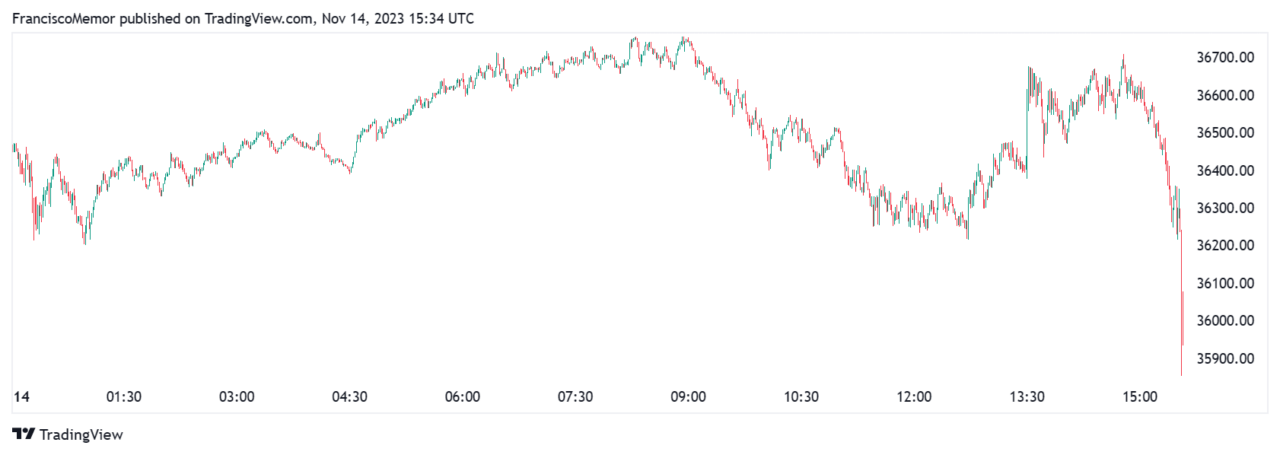Last month, U.S. inflation pressures eased further, according to data from the US Department of Labor released on Tuesday, which shows core consumer prices, which exclude food and energy, dropped to the lowest level in two years and cast doubt on the Federal Reserve’s plans to raise interest rates soon.
The Labor Department reported that the overall consumer price index for October was 3.2%, much lower than the 3.7% recorded in September and below the market expectation of 3.3%. Compared to the previous month, inflation was flat in October, down from 0.4% in September and 0.6% in August.
Core inflation, which is a more stable measure of price changes, slowed to 4.0%, the weakest since 2021, while the monthly increase of 0.2% was also in line with analysts’ forecasts. Reacting to the numbers the S&P 500, the stock market’s benchmark index, rose 1.9% at the time of writing, while the Nasdaq is up 2%.
The flagship cryptocurrency Bitcoin, meanwhile, has lost around 0.5% of its value over the last 24-hour period, although other factors including investors’ expectations of a potential spot Bitcoin exchange-traded fund (ETF) being listed in the US could also affect its price.
At the time of writing Bitcoin is trading at around $36,000 per coin. Its year-to-date performance is still around 119%.
The data also pushed down the yields of U.S. Treasury notes, which move inversely to prices. The 10-year note yield fell by 17 basis points to 4.457%, while the 2-year note yield dropped by 19 basis points to 4.849%.
The U.S. Dollar Index (DXY) also experienced a correction of around 1.16% to 104.41, from around 105.56.
The market now expects the Federal Reserve to keep its key interest rate unchanged at 5.25% to 5.5% at its next meeting in December, according to the CME Group’s FedWatch tool.
Featured image via Unsplash.
Source: Read Full Article

